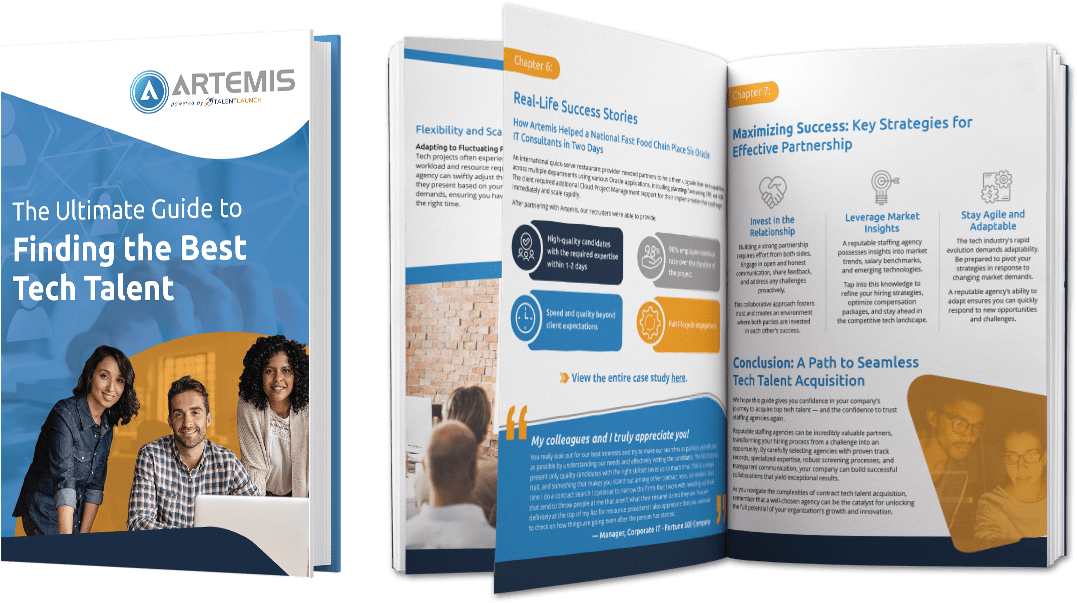Cloud computing has become central to modern IT strategy, but managing costs can be a challenge without the right cloud tech expertise on board.
While cloud cost control strategies are widely known, understanding which tech consultant to involve at each step can make the difference in achieving long-term savings — especially when your team lacks the bandwidth to execute capital IT projects independently.
Cloud Cost Optimization: The Strategies and Consultants to Help You Do It Right
So, how can your business maximize cloud efficiency and optimize spending? Below are key strategies paired with the expert roles you’ll need to execute each one effectively.
1. Understand Your Usage Patterns
Tracking and analyzing cloud usage is foundational to cost control. A Cloud Architect can design the system and ensure you’re leveraging the right management tools (like AWS CloudWatch, Azure Monitor, or Google Cloud’s Operations Suite), while a Data Analyst will interpret the data and identify trends in resource usage.
These cloud consultants will help you understand peak times and how resources are being consumed, providing a clear view of where you can reduce waste or better allocate resources. Their insights not only cut costs but also ensure your cloud environment remains scalable and efficient as your company grows.
2. Implement Cloud Cost Management Tools
Leveraging built-in cost management tools is crucial, but setting them up and maximizing their utility often requires specialized knowledge. A Cloud Cost Management Specialist (or FinOps expert) can configure AWS Cost Explorer, Azure Cost Management, or third-party solutions like CloudCheckr and CloudHealth to ensure costs are monitored accurately.
These expert consultants track cloud spending and make real-time adjustments to prevent budget overruns, ensuring your cloud budget is optimized for both immediate and long-term savings.
3. Optimize Resource Utilization
Right-sizing your resources and using auto-scaling capabilities requires deep technical expertise. A DevOps Engineer is vital for automating cloud operations, allowing your system to adjust resource levels based on actual demand.
Meanwhile, a System Administrator can review and decommission unused resources to ensure your cloud setup is lean and cost-efficient.
These roles ensure you’re only paying for what you truly need, avoiding resource bloat and unnecessary expenses. Beyond cost control, their expertise ensures your cloud infrastructure scales seamlessly as your business needs evolve, minimizing downtime and increasing agility.
4. Use Reserved Instances and Savings Plans
Predicting future cloud usage and selecting the right pricing model can be complex. An IT Financial Analyst will help forecast workload demands and advise on the best savings plans or reserved instances for your needs.
With long-term commitments like reserved instances, their financial expertise ensures you avoid overcommitting, balancing cost savings with flexibility to support future growth.

5. Leverage Spot Instances
Spot instances like AWS Spot Fleet or Google Preemptible VMs can significantly lower costs for non-critical workloads, but their unpredictable nature makes them a challenge to manage. This is where a Cloud Operations Specialist comes in.
They’ll identify which workloads are appropriate for spot instances and ensure that interruptions don’t affect critical tasks.
Their expertise allows you to take advantage of cost savings without sacrificing reliability, integrating flexible workloads into your operations while maintaining performance.
6. Implement Budgeting and Alerts
Creating and managing cloud budgets often requires collaboration between IT and finance. A Cloud Financial Analyst (or FinOps Engineer) can set up budget alerts and thresholds, giving you early warnings when spending nears limits or unexpected costs arise.
By proactively monitoring spending, they help your business stay within budget while adjusting to prevent unexpected surges in cloud costs, acting as the bridge between technical and financial priorities.
7. Managing Storage and Networking Expenses
Cloud storage and networking expenses can balloon without careful planning. To manage both, you’ll need specific cloud consulting expertise.
Cloud Storage Costs
A Cloud Storage Architect specializes in designing tiered storage solutions, ensuring that frequently accessed data remains in high-performance storage while less critical data is moved to cost-effective options like cold storage.
These architects also implement data lifecycle management policies that automatically archive or delete outdated data, keeping cloud storage costs efficient and aligned with your business needs.
With their help, you can avoid unnecessary spending on high-tier storage while ensuring that critical data remains accessible.
Cloud Networking Costs
A Cloud Networking Engineer focuses on optimizing network configuration and minimizing data transfer costs.
By implementing solutions like content delivery networks (CDNs) to reduce latency, or leveraging private connections like AWS Direct Connect or Azure ExpressRoute, they ensure efficient data transfer across regions without incurring excessive charges.
Their expertise guarantees that your network architecture is built for both performance and cost-effectiveness, allowing you to avoid costly data transfer fees as your usage scales.
8. Evaluate Multi-Cloud Strategies
Managing a multi-cloud environment can provide flexibility and cost advantages, but it also adds complexity. A Multi-Cloud Architect can design a cloud-agnostic architecture that avoids vendor lock-in while leveraging the best pricing and services from each provider.
Additionally, they ensure applications can run smoothly across multiple platforms, maximizing savings without increasing operational headaches.
Involving a multi-cloud consultant not only provides financial flexibility but also allows you to pivot between providers with minimal disruption to your operations.
9. Bring in Expert Consultants for Comprehensive Cloud Evaluations
At the intersection of these strategies is the need for expert oversight. A third-party Cloud Consultant can assess your entire cloud infrastructure, identifying areas where you’re overspending and where optimization can have the greatest impact.
They can bring in specialized Contract IT Experts to execute these optimizations without burdening your internal team.
Bringing in external IT services and consultants allows you to tackle specific challenges efficiently, ensuring that your cloud strategies are both cost-effective and scalable for the long term. These consultants bring the industry’s best practices and the latest insights to your cloud infrastructure, ensuring sustainable cost control.

Strategic Cloud Cost Control: More Than Just Cutting Expenses
Optimizing cloud costs isn’t just about knowing the right strategies—it’s about involving the right expertise to execute them effectively.
Whether you need cloud architects, financial analysts, or specialized operations engineers, having the right consultants in place is key to transforming your cloud investment into a streamlined, efficient, and cost-effective asset.
With the right experts, your cloud infrastructure won’t just meet today’s needs but will also scale efficiently as your business grows.
Need Help Evaluating Your Cloud Strategy?
Is your team equipped with the right tech expertise for cloud cost management? Consider evaluating your current strategy and consulting with experienced professionals to ensure every dollar spent is driving value.






